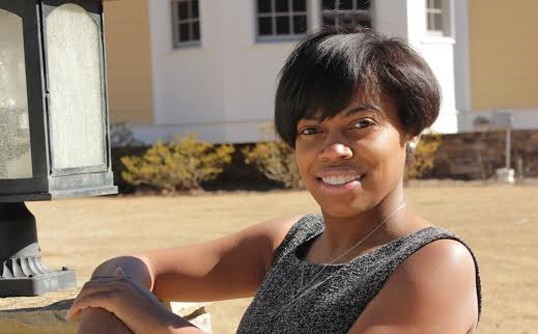
Like many recent graduates, Teresa Oliver encountered a tough job market when she finished her master’s degree in applied developmental psychology. Previously a teacher and tutor, Teresa had been inspired by her own son’s struggles — and the many students like him — to go back to school and study psychology to help children who feel out of place. But after a year of job searching, Teresa was still unemployed.
Undeterred, Teresa took an alternate route: she simply created a job for herself. She wrote her first children’s book, Again David’s Having Distractions, about a boy who has trouble fitting in at school and now travels to schools to share her book and speak with students and teachers about neurodiversity. Neurodiversity is just a fancy word which describes the diversity in our brain make up. For instance, we, as a society, will acknowledge cultural and racial diversity, but we haven’t begun to acknowledge the differences in neurological differences without adding a maladaptive label. Luckily, it’s morphed into a job that both fits her passion and her life as a busy single mother.
What inspired you to pursue a career in psychology?
My son and many students like him were my inspiration. He had challenges early on academically and my initial thought was to find a career in education, but the more I grew into the program and the politics of education, I knew it wasn't for me. However, I still had this huge passion and desire to understand these "unteachable minds." So I found myself pursuing a career in psychology. Psychology teaches on human development; the mind as well as the brain (both typically and atypically).
How did you discover your current job?
I'd searched for more than a year for a psychology job, but wasn't able to find anything. So, I did what I felt was best for my family and me and I created a job for myself. I wrote my first children's book, which debuted at the end of last year. I've been to many schools to introduce my book and speak with students about neurodiversity. Specifically, I have engaged students and teachers in conversations which celebrate the natural diversity inherent in human brains, where too often we medicalize and pathologize the diversity in human brains.
I've also held a few professional development workshops for teachers. The workshops instruct teachers how to teach, relate to and understand different types of minds.
Finally, I've helped several other entrepreneurs start their own businesses—i.e. a self-defense studio, food truck and an aquaponics business. I'm not exactly sure of the title of that particular job, but it will give me residual income as long as the business is in operation!
How do you organize your day?
I've always been pretty organized; it's just kind of natural for me. I love for things to run smoothly—chaos makes me extremely unpleasant. So, to get organized, I start with a list on Sundays of all the many things I need to do and places I need to go for the week. I break my list down by days and cross off things as I accomplish them. I also leave room for last-minute issues or mistakes. Being a single working mom, you really have to stay organized so you won't burn out—or lose all of your hair!
What is it about your job that makes you feel it's the right fit for you?
Currently, my job works well with my schedule as a single mother. Anyone with children knows just how hectic and chaotic any given day can be. Fortunately, I can create my own schedule for the most part, so the ability to be where I have to be when I need to be makes me feel like my job is a perfect fit. Another added bonus is that I'm able to talk to other authors, other businessmen and women who are interested in helping children receive a quality education. Finally, I feel like my work really helps individuals and families make an impact on themselves and others.
What challenges keep you awake at night?
Everything keeps me up at night! I'm a worry box. I worry about everything from global warming to not being "mindful" enough.
One of the major things I worry about is not being able to help everyone who needs help. So many children need help, but it's impossible to reach help them all. Another challenge that keeps me awake is that I won't make the impact that I truly want to make in education reform; that my voice will go unheard and no change will come about.
What project have you worked on that you're most proud of? Why?
I wrote my first children's story while attending grad school. It was a project that I began working on simply as a release from all the stress of grad school, but it turned into something really awesome.
What are some of the rules you live by?
I have so many rules! When you learn, teach. When you get, give. I think I got that rule from Maya Angelou. That's probably my absolute favorite.
I also live by all the laws of attraction and energy—positive attracts positive and negative attracts negative.
Another one: Think without limits. If you think it, you can achieve it. Dream big!
What qualities does it take for someone to be a successful in psychology?
Creativity. You really have to be creative in this field. So many people think psychology directly correlates with becoming a psychologist, professor or a human service employee. However, I took my education and put a creative spin on it.
What one piece of advice do you wish you could tell a 21-year-old version of yourself?
Get to know yourself.